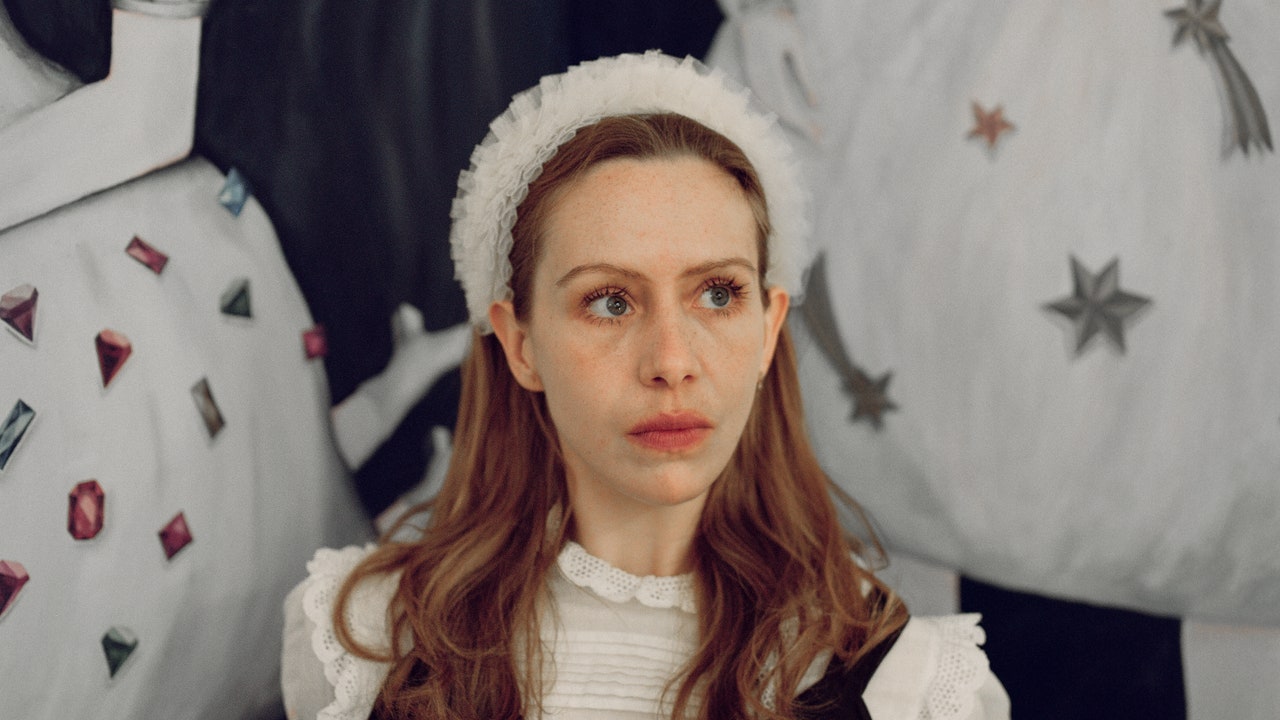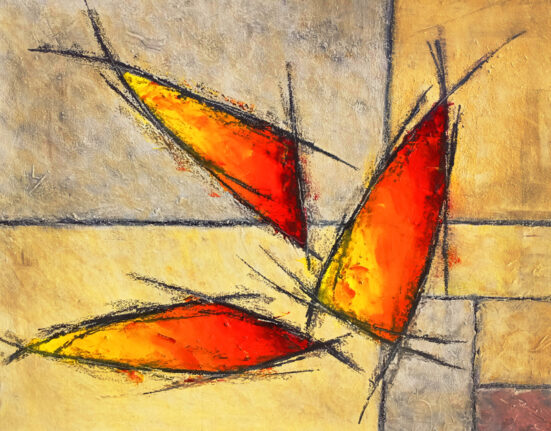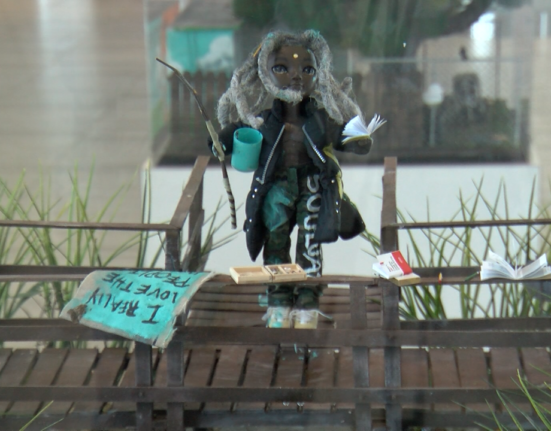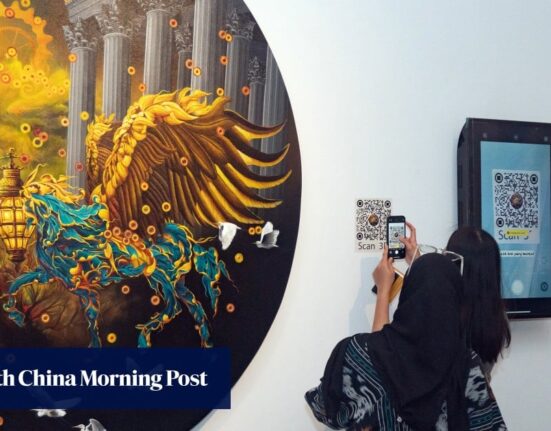Frida Wannerberger is a feminist and fashion-friendly Swedish artist based in London whose bitter and sweet work speaks to the current zeitgeist in a nuanced way. She paints life-size paper-doll-like women, who are uniform-dressers, at least in terms of silhouette. First impressions are likely not to stick: Their imposing scale, the patterning of their frocks, and most importantly, the titles of the work, reframe how these works are read.
In April this recent RCA graduate presented a series of work she had started during the isolation of pandemic lockdowns at the Haricot Gallery in the British capital. Titled “Take Me, I’m Yours,” the exhibition addressed “intense longing and the complexities of human connection.” This month, another of Wannerberger’s “girl gangs” traveled from London to Beijing to take up residence for the run of “Into the Sunset With You,” an exhibition about “love and disappointment,” at Tang Contemporary Art. In their beribboned puff-sleeved dresses the life-size cuties reflect the trend for a romantic, even rococo, flourish (see the costumes in Poor Things or Balenciaga’s pre-fall evening looks). Look again, however, and you’ll notice that the backgrounds against which some of the dolls stand are unsettled; titles like “You’re the anticlimax of my life” and “In my dreams you reply,” are acerbic and potentially ironic. Also included in the show are works from the artist’s ongoing imaginative “What to Wear” series; i.e. “What to wear when hoping that the past will become the present: Waxed table cloth blouse, 1997 sandals.”
The way that Wannerberger’s work speaks to dichotomy makes it feel particularly resonant. Her paintings are life-size, but not life-like in a realistic way. And dressing these women up is done to expose an inner memory or experience; in this way vulnerability commingles with boldness.
One of the most provocative elements of Wannerberger’s work is its flatness. Like two-dimensional garments that are completed by the body, these totemic women are animated by the emotions they depict. Moreover, there is strength in their solidarity. For Wannerberger, a frock is a feminist mantra. “At the end of the day I would like to think that I am exploring a ground where I—out of choice—choose to pay homage to centuries of women wearing dresses and adhering to a certain chaste, fragile way of looking, all whilst having a sound mind for how you conduct yourself as a business and your own personal moral grounds,” she writes. “I would like to think that the most feminist act you could do (in my position) is to wear all the dresses I want, in doing so paying homage to the generations of women that paved the ground for my choices and have a firm view on my standpoints.”







